17 start with R start with R
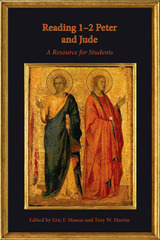
An essential textbook on 1–2 Peter and Jude for readers of all levels
Scholars engage the best contemporary work on 1–2 Peter and Jude in this student-oriented book. The first four chapters in this collection—on authorship and pseudonymity, literary relationships among the three books, epistolary rhetoric, and apocalyptic elements—consider important, foundational issues related to all three epistles. These essays lay the groundwork for more focused chapters that examine theology and theory in 1 Peter as well a stylistic, theological, and thematic overlap in Jude and 2 Peter.
Features:
- A range of theological, literary, and theoretical approaches
- Definitions for specialized terminology
- Historical and cultural background information
- Explanations of methodologies
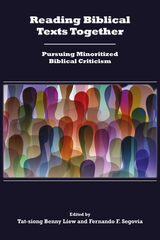
A solid and suggestive foundation for the future of ethnic-racial minority biblical criticism
This volume, edited by Tat-siong Benny Liew and Fernando F. Segovia, expands the work begun in They Were All Together in One Place? Toward Minority Biblical Criticism (2009) by focusing on specific texts for scholarly engagement and exchange. Essays by scholars of racial/ethnic minoritized criticism of the Bible highlight the various factors and dynamics at play in the formation of power relations within and through four biblical texts: two from the Hebrew Bible (Genesis 21 and 1 Kings 12) and two from the New Testament (John 4 and Revelation 18). Contributors include Ahida Calderón Pilarski, Ronald Charles, Stephanie Buckhanon Crowder, Lynne St. Clair Darden, Steed Vernyl Davidson, Mary F. Foskett, Jione Havea, Tat-siong Benny Liew, Roberto Mata, Henry W. Morisada Rietz, Raj Nadella, Miranda N. Pillay, David Arthur Sánchez, Timothy J. Sandoval, Fernando F. Segovia, Mitzi J. Smith, Angeline M. G. Song, Linzie M. Treadway, Nasili Vaka’uta, Demetrius K. Williams, and Gale A. Yee. Each essay expands our understandings of minoritization from a global perspective.
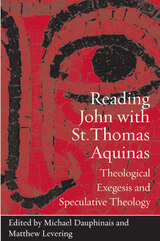
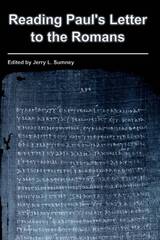
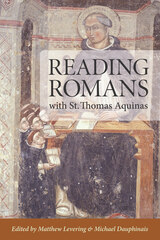
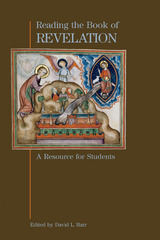
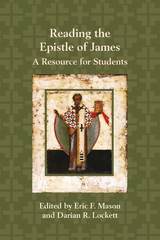
Foundational essays for students of New Testament epistles
This accessible introduction to contemporary scholarship on the Epistle of James begins with chapters that consider possible sources and backgrounds used by the author of James, the genre and literary structure of the book, and its major theological themes. Building on this foundation, subsequent chapters examine James through social-scientific readings, perspectives of Latin American immigrants and the marginalized, and major recent developments in textual criticism. The final chapters in the volume address the relationship between the epistle and the historical James, reception of the epistle in the early church, and major Catholic and Protestant interpretations of the book in the Reformation era. The contributions in this volume distill a range of important issues for readers undertaking a serious study of this letter for the first time.
Features
- An introduction to contemporary scholarship on this important but often-overlooked text
- Clear explanations of all technical terms and themes
- In-depth discussions of the importance of Jewish Scripture and interpretative traditions, Greco-Roman philosophy and Jewish wisdom motifs, and biblical perspectives on justice, wealth, and poverty
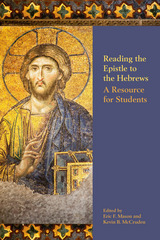
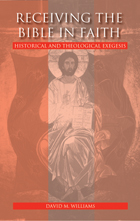
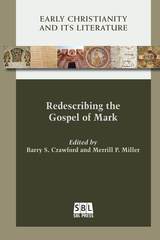
A collaborative project with a variety of critical essays
This final volume of studies by members of the Society of Biblical Literature’s consultation, and later seminar, on Ancient Myths and Modern Theories of Christian Origins focuses on Mark. As with previous volumes, the provocative proposals on Christian origins offered by Burton L. Mack are tested by applying Jonathan Z. Smith's distinctive social theorizing and comparative method. Essays examine Mark as an author’s writing in a book culture, a writing that responded to situations arising out of the first Roman-Judean war after the destruction of the Jerusalem temple in 70 CE. Contributors William E. Arnal, Barry S. Crawford, Burton L. Mack, Christopher R. Matthews, Merrill P. Miller, Jonathan Z. Smith, and Robyn Faith Walsh explore the southern Levant as a plausible provenance of the Gospel of Mark and provide a detailed analysis of the construction of Mark as a narrative composed without access to prior narrative sources about Jesus. A concluding retrospective follows the work of the seminar, its developing discourse and debates, and the continuing work of successor groups in the field.Features
- A thorough examination of the relation between structure and event in social and anthropological theory that provides conceptual tools for representing the project of the author of Mark
- An exploration of the southern Levant as a plausible provenance of the Gospel, a permanent site of successive imperial regimes and culturally related peoples
- A detailed analysis of the construction of Mark as a narrative composed without access to prior narrative sources about Jesus

In this groundbreaking publication, originally published in 1972, George Nickelsburg places ideas in their historical circumstances as he probes biblical and postbiblical texts and challenges widely accepted scholarship. The continuities in literary forms demonstrate that divine justice was the central issue, but that people differed as to whether that justice was enacted in this life, in the assumption to heaven, in a resurrection, or in the ongoing life as an immortal soul.
The expanded edition includes subsequent studies on the resurrection accounts and theologies of the New Testament, the New Testament passion narratives, and Jewish and Christian theologies about the Son of Man.
This book provides a window into aspects of the ancient apocalyptic worldview whose dynamics and functions are often misunderstood.
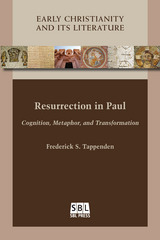
Explore the embodied foundations of Paul's resurrection ideals
It is commonly recognized that Paul's resurrection ideals are bodily ideals, though this dictum is usually configured along literal and metaphorical lines. The realism of future resurrected bodies is disconnected from the metaphoricity of bodily transformation in the present. Drawing on cognitive linguistics, this fresh and innovative study addresses this problem. By eschewing the opposition of metaphor and realism, Tappenden explores the concepts and metaphors Paul uses to fashion notions of resurrection, and the uses to which those notions are put. Rather than asserting resurrection as a disembodied, cognicentric proposition, this book illuminates the body's central role in shaping and grounding the apostle's thought and writings.
Features:
- Close examination of Paul's letters within multiple, interlocking cultural contexts
- Provides a novel and fresh approach to assessing (in)coherence across the undisputed letters
- Addresses the materialist nature of early Christian and Judean resurrection ideals without compromising the metaphoricity of those ideals
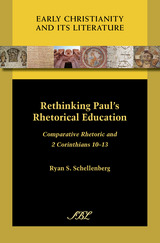
Did Paul have formal training in Greco-Roman rhetoric, or did he learn what he knew of persuasion informally, as social practice? Pauline scholars recognize the importance of this question both for determining Paul’s social status and for conceptualizing the nature of his letters, but they have been unable to reach a consensus. Using 2 Corinthians 10–13 as a test case, Ryan Schellenberg undertakes a set of comparisons with non-Western speakers—most compellingly, the Seneca orator Red Jacket—to demonstrate that the rhetorical strategies Paul employs in this text are also attested in speakers known to have had no formal training in Greco-Roman rhetoric. Since there are no specific indicators of formal training in the way Paul uses these strategies, their appearance in his letters does not constitute evidence that Paul received formal rhetorical education.
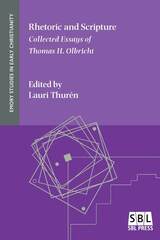
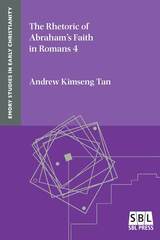
Explore Romans 4 from a sociorhetorical perspective
Andrew Kimseng Tan examines Romans using sociorhetorical interpretation to determine how Paul attempted to alleviate dissension between Judean (or “Jewish”) and non-Judean (or “gentile”) Christians. Through his analysis of Paul’s rhetoric, Tan reveals that Paul used Abraham’s faith in Genesis to demonstrate that the both groups were equally children and heirs of Abraham whose acceptance by God was through the same kind of faith that Abraham possessed, not through the Mosaic law, which Judean Christians claimed gave them a special honored status with God.
Features
- A model for the application of sociorhetorical interpretation for analyzing close readings of biblical texts
- A demonstration of the persuasive power of Romans 4 through the use of sociorhetorical interpretation
- Exploration of the relationships between important theological topics such as resurrection, the Mosaic law, the Holy Spirit, righteousness, ethical living, and eschatological salvation
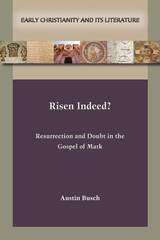
Risen Indeed? Resurrection and Doubt in the Gospel of Mark traces the literary dynamics and explores the theological dimensions of the Gospel of Mark’s thematization of skepticism regarding resurrection. In every place where it seems to depict resurrection—Jesus's and others'—Mark evades the issue of whether resurrection actually occurs. Austin Busch argues that, despite Mark's abbreviated and ambiguous conclusion, this gospel does not downplay resurrection but rather foregrounds it, imagining Jesus’s death and restoration to life as a divine plot to overcome Satan through cunning deception. Risen Indeed? constitutes a careful literary reading of Mark's Gospel, as well as an assessment of Mark's impact on the traditions of Christian literature and theology that emerged in its wake.

READERS
Browse our collection.
PUBLISHERS
See BiblioVault's publisher services.
STUDENT SERVICES
Files for college accessibility offices.
UChicago Accessibility Resources
home | accessibility | search | about | contact us
BiblioVault ® 2001 - 2024
The University of Chicago Press









